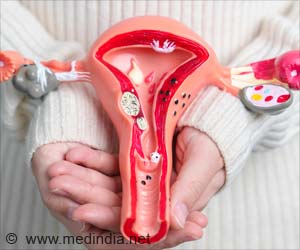iKnife; a revolutionary diagnostic surgical knife can ‘smell tumors’ and detect womb cancer in a few seconds
- Delays in the diagnosis and treatment of endometrial cancer negatively impact patient survival
- The iKnife which is a diagnositic surgical tool can reliably diagnose endometrial cancer in seconds, with a diagnostic accuracy of 89% //
- The iKnife analyses the smoke released when biopsy tissue is vaporized to distinguish between cancerous and healthy tissue using electrical currents
Working of iKnife
The first study to test the invention was conducted nearly a decade ago, by collecting tissue samples from 91 patients with 100 percent accuracy.The iKnife uses ‘electrosurgery’, a method commonly used today. "Electrosurgical knives use an electrical current to rapidly heat tissue, cutting through it while minimising blood loss. By doing so, they vaporize the tissue, creating smoke that is normally sucked away by extraction systems," the Imperial College had said in a statement at the time.
iKnife analyses the smoke emitted from the biopsy tissue when it is vaporized after being removed from the womb.
It achieves this by utilizing electrical currents to distinguish between cancerous and healthy tissue.
According to the recent study, iKnife was used on 150 women with suspected womb cancer. Researchers, in order to determine the effectiveness, compared the results to the current methods of diagnosis which typically take at least two weeks to show the results.
Implications of iKnife
"In cancer surgery, you want to take out as little healthy tissue as possible, but you have to ensure that you remove all of the cancer. There is a real need for technology that can help the surgeon determine which tissue to cut out and which to leave in," said Lord Darzi, who now holds the Paul Hamlyn Chair of Surgery at the Imperial College and co-authored the 2013 study, in a statement.Womb cancer has one ‘red flag’ symptom of postmenopausal bleeding that should always get checked out on a two-week referral from your general physician. To wait a further two weeks for the results can be really hard for patients.
Sadaf Ghaem-Maghami, professor and the lead researcher of the team that created iKnife, echoed a similar sentiment of the benefits of early detection, diagnosis and treatment as well as avoiding weeks of anxiety.
“With its high diagnostic accuracy of 89% and positive predictive value of 94%, one could immediately reassure the person of the very low likelihood of having cancer if the iKnife result is negative and expedite further tests and scans and treatment for people whose biopsies indicate presence of cancer,” said the lead researcher of the study.
Reference:
- Point-of-Care Diagnosis of Endometrial Cancer Using the Surgical Intelligent Knife (iKnife)—A Prospective Pilot Study of Diagnostic Accuracy - (https://www.mdpi.com/2072-6694/14/23/5892)
Source-Medindia















